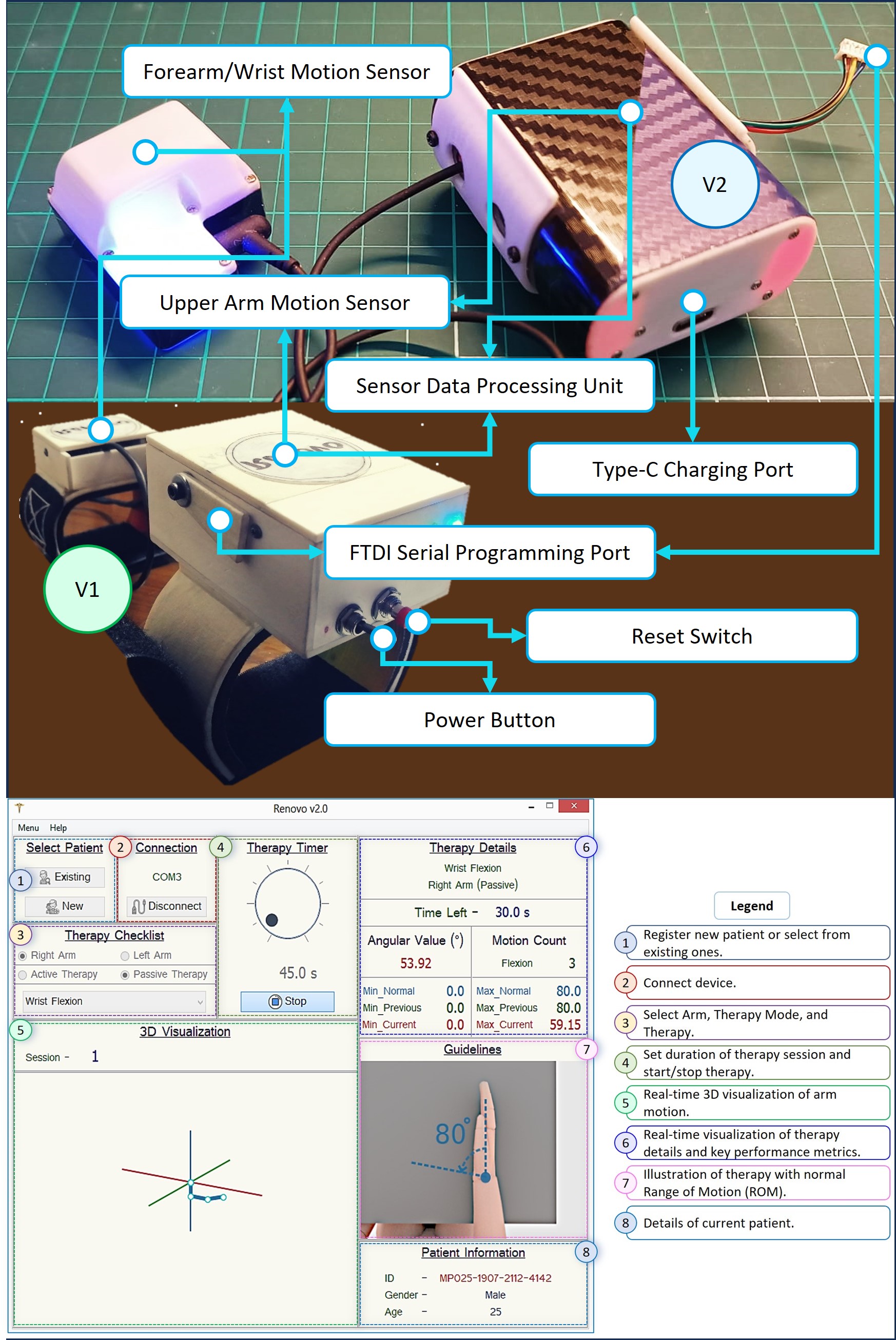Renovo: A sensor-based therapeutic system for real-time visualization of performance metrics in the rehabilitation of post-stroke upper limb disability
Timeline:
Work in Progress
Project Summary:
Stroke patients with motor impairments of the upper limb are conventionally
re-acclimated to the corresponding motor functionalities through therapeutic
interventions, following assessment by physiotherapists using various qualitative
assessment protocols. However, such assessments are often biased and prone to errors.
Consequently, real-time visualization and quantitative analysis of various
Performance
Metrics (PMs) of patient's arm motion, such as - range of motion, rate
of repetition, velocity, etc., may be vital for proper progress
assessment. In this regard, Renovo, a prototype of a sensor-based assistive
technology may assist the physiotherapists with real-time visualization of PMs and
quantitative patient assessment in the rehabilitation of post-stroke upper limb
rehabilitation.

System Demonstration
The device used in the video illustration above is just an earlier prototype of Renovo. The earlier version of Renovo utilized similar sensors for motion capturing. The newer version differs from the older one in terms of - device footprint and appearance. The newer version is more compact and enclosed within 3D-printed enclosure.
References
- Renovo: A Sensor-Based Therapeutic System for Brachial Monoplegia (2021) (Preprint)
- BASIS National ICT Awards (2020) (Winner)